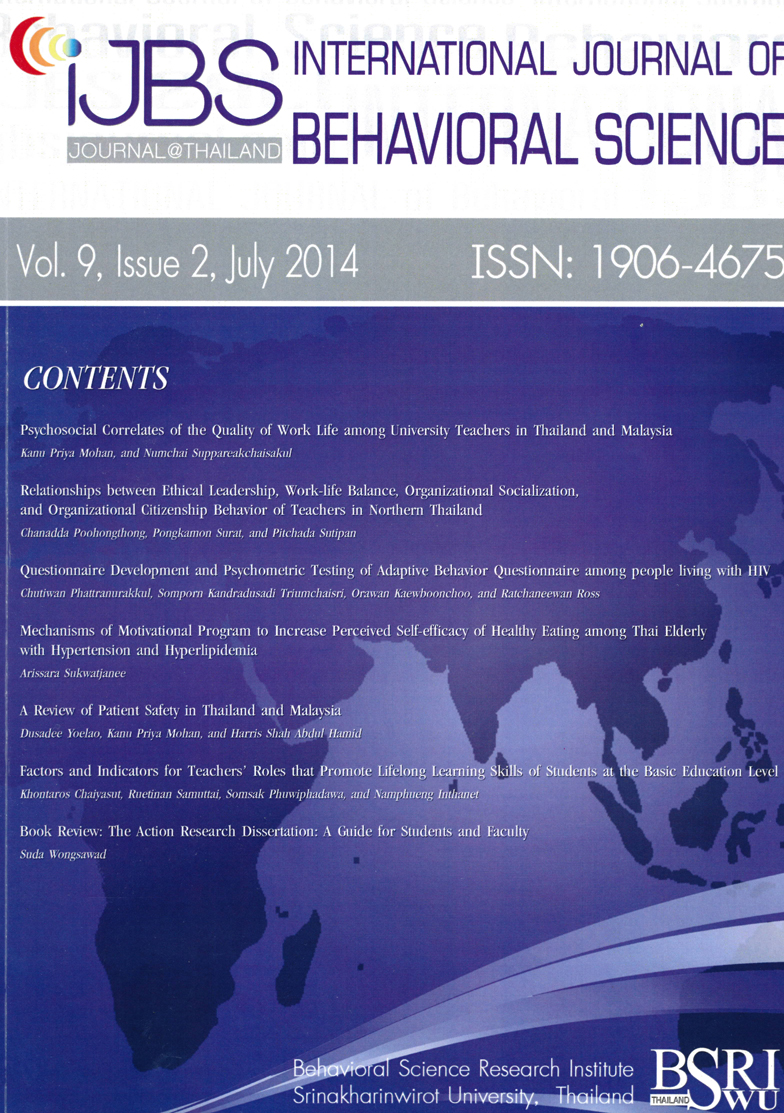Discursive Practice of Thai Traditional Medicine in Hospital: Case Study of a District Hospital in Nakhon Pathom Province
Main Article Content
Abstract
The purpose of this research was to study the discursive practices toexplain the contestation of knowledge about Thai traditionalmedicine (TTM) in the context of a district hospital in Thailand.This study applied the ideology of Foucault (1980). Data wascollected using observation and validated by in-depth interviewswith TTM practitioners, medical doctors, pharmacists, nurses andpatients. Content analysis was used for analyzing the data. Theresult indicated that the discursive practice of TTM in hospital wasbased on knowledge. The positive aspects of TTM were holistichealth care, health promotion, natural and safe, and cost effective.The negative aspects involved lack of choice in using alternativemedicine, old-fashioned, low-awareness and less knowledge,and the perception of the “mhor nuad” (massager/masseur) asunprofessional. The resistant behaviors of TTM in the hospital werechallenged by developing self-subjectivity, maintaining identity,public relation, integrated knowledge, intervened knowledge, denialin action, and refusal to service. Biomedicine was believed to applyscientific knowledge and an arrangement of working patterns ofTTM service. This played a pivotal role in managing and controllingthe position of TTM; also viewed as unequal since it gave a medicaldoctor the power to control and to limit the TTM service. Theprovision of TTM in hospital should be fully integrated and shouldbe more than only a choice or an alternative. This could helpdevelop health care services and a better management of knowledgebetween traditional and modern medicine for providing sustainableand holistic health care in hospital.
Keywords: Thai traditional medicine, biomedicine, discourse,discursive practice


